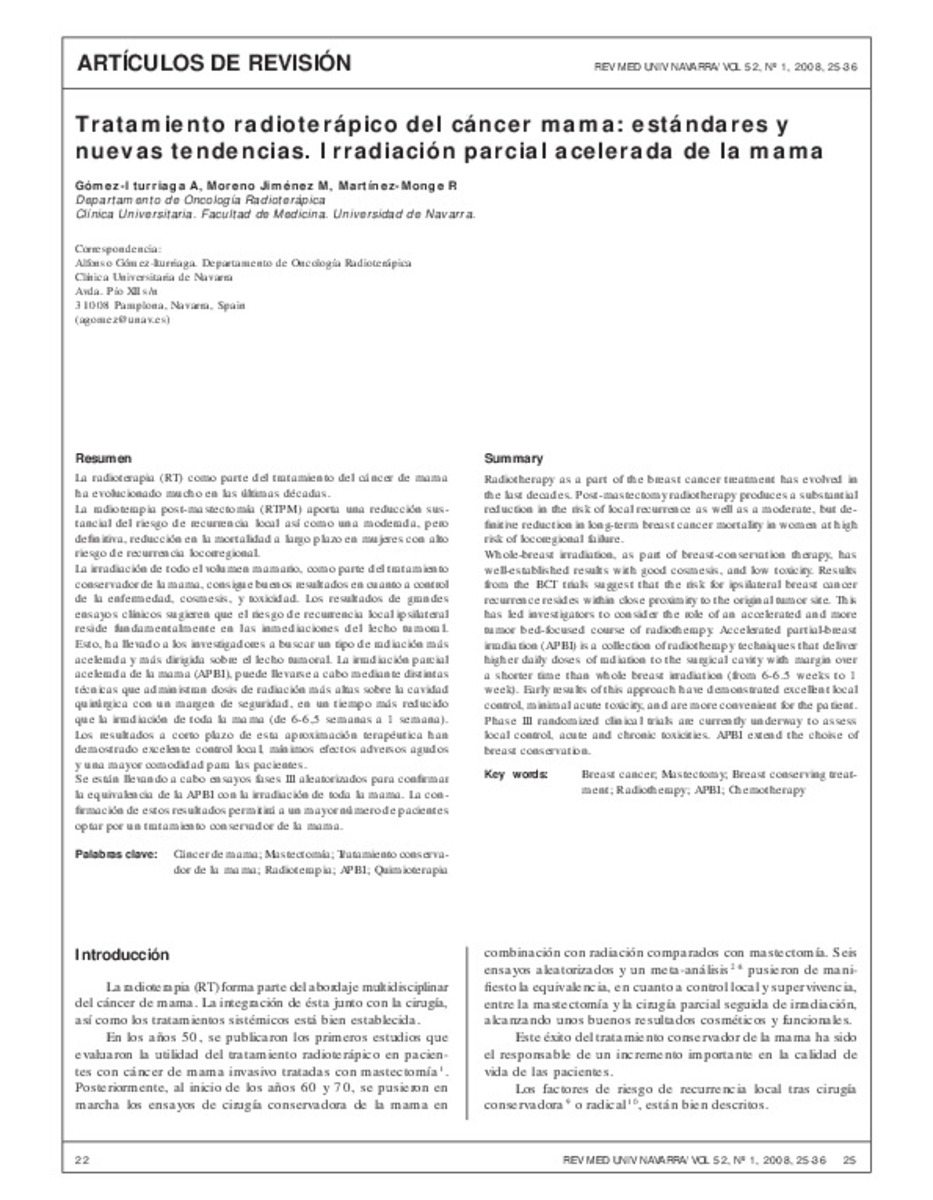Tratamiento radioterápico del cáncer mama: estándares y nuevas tendencias. Irradiación parcial acelerada de la mama
Keywords:
Cáncer de mama
Mastectomía
Publisher:
Ediciones Universidad de Navarra
Citation:
Gómez-Iturriaga A, Moreno Jiménez M, Martínez-Monge R. Tratamiento radioterápico del cáncer mama: estándares y nuevas tendencias. Irradiación parcial acelerada de la mama. Rev Med Univ Navarra. 2008 Jan-Mar;52(1):25-36.
Statistics and impact
0 citas en

0 citas en

Items in Dadun are protected by copyright, with all rights reserved, unless otherwise indicated.







